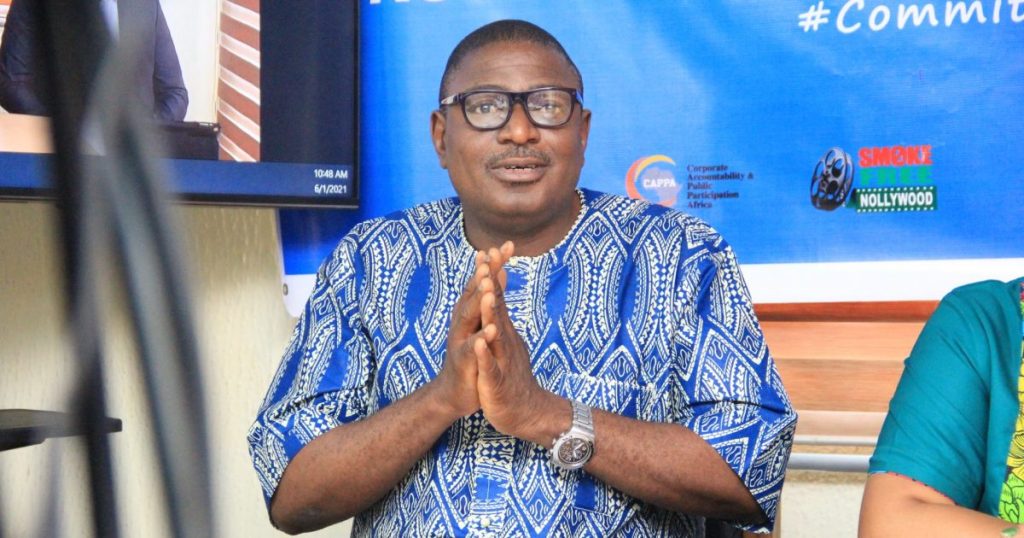The Corporate Accountability and Public Participation Africa (CAPPA) has issued a compelling call to action, urging the Nigerian National Assembly to substantially increase the budgetary allocation for tobacco control in the upcoming 2025 national budget. Their advocacy centers on a significant boost in funding, from the current meager N10 million to a more impactful N300 million. CAPPA argues that this augmented allocation is not merely desirable but essential to effectively combat the escalating public health crisis fueled by tobacco consumption in Nigeria. This call to action is underscored by formal petitions submitted to both the Senate President and the Speaker of the House of Representatives, emphasizing the urgent need for increased financial commitment to address the multifaceted challenges presented by tobacco use and to ensure the robust implementation of the National Tobacco Control Act of 2015.
CAPPA’s argument rests on the stark reality of tobacco’s devastating impact on public health and the Nigerian economy. Tobacco use remains the leading preventable cause of death globally, and Nigeria bears a significant portion of this burden, with tobacco-related illnesses claiming an estimated 26,800 lives annually. Beyond the human cost, the economic consequences are substantial, draining billions from the national economy through healthcare expenditures and lost productivity. The detrimental effects extend beyond human health, as tobacco cultivation contributes to environmental degradation, including deforestation and soil depletion, further exacerbated by the pollution caused by discarded cigarette waste.
The organization also highlights the alarming rise in the popularity of unregulated tobacco and nicotine products, particularly among young people. These products, including electronic cigarettes and smokeless tobacco, are often deceptively marketed as trendy alternatives, masking the inherent health risks they pose. This aggressive marketing strategy, coupled with weak monitoring systems, allows tobacco companies to exploit social media platforms and engage in misleading corporate social responsibility initiatives to gain favor with public health authorities, ultimately undermining existing tobacco control laws and fueling increased tobacco consumption.
While CAPPA acknowledges the modest increase in tobacco control funding from N4.7 million in 2023 to N10 million in the 2024 budget, they maintain that this allocation remains woefully inadequate to address the scope of the challenge. A significant portion of the current funding is consumed by operational costs, primarily for the National Tobacco Control Committee (NTCC), which is mandated to meet at least four times a year. This leaves minimal resources for other crucial activities, such as comprehensive public awareness campaigns and support for tobacco farmers seeking alternative livelihoods.
CAPPA advocates for a multi-pronged approach to strengthen tobacco control efforts, emphasizing the critical need for increased investment in several key areas. First, robust public awareness campaigns are essential to educate the Nigerian populace about the dangers of tobacco use, requiring substantial funding for media outreach, community engagement, and coordination with diverse stakeholders across the country. Second, transitioning tobacco farmers to sustainable alternative crops necessitates ongoing investment in training programs, provision of quality seedlings, and financial support to ensure their successful transition.
Finally, and perhaps most importantly, CAPPA calls for the full operationalization of the Tobacco Control Fund (TCF), established under the 2015 Nigeria Tobacco Control Act. This fund is designed to provide dedicated resources for vital activities, including public health campaigns, regulatory enforcement, research on tobacco trends, and support for alternative livelihood programs for tobacco farmers. The TCF’s current lack of full implementation represents a significant missed opportunity to bolster tobacco control efforts and protect Nigerians from the devastating consequences of tobacco consumption and aggressive marketing tactics. The call for increased funding is therefore not just about increasing numbers, but about fulfilling the promise of the TCF and empowering Nigeria to effectively combat the tobacco epidemic. The requested N300 million represents a crucial investment in the health and well-being of the Nigerian people, an investment that promises significant returns in terms of lives saved, healthcare costs averted, and a healthier, more productive nation.


